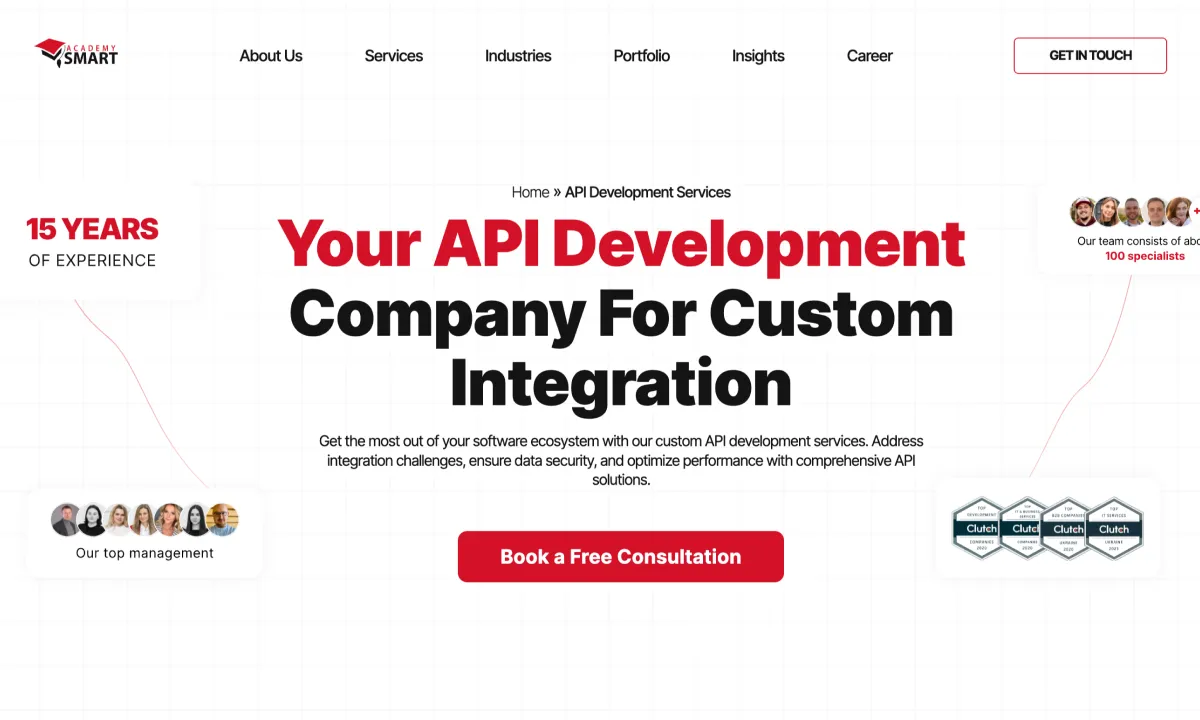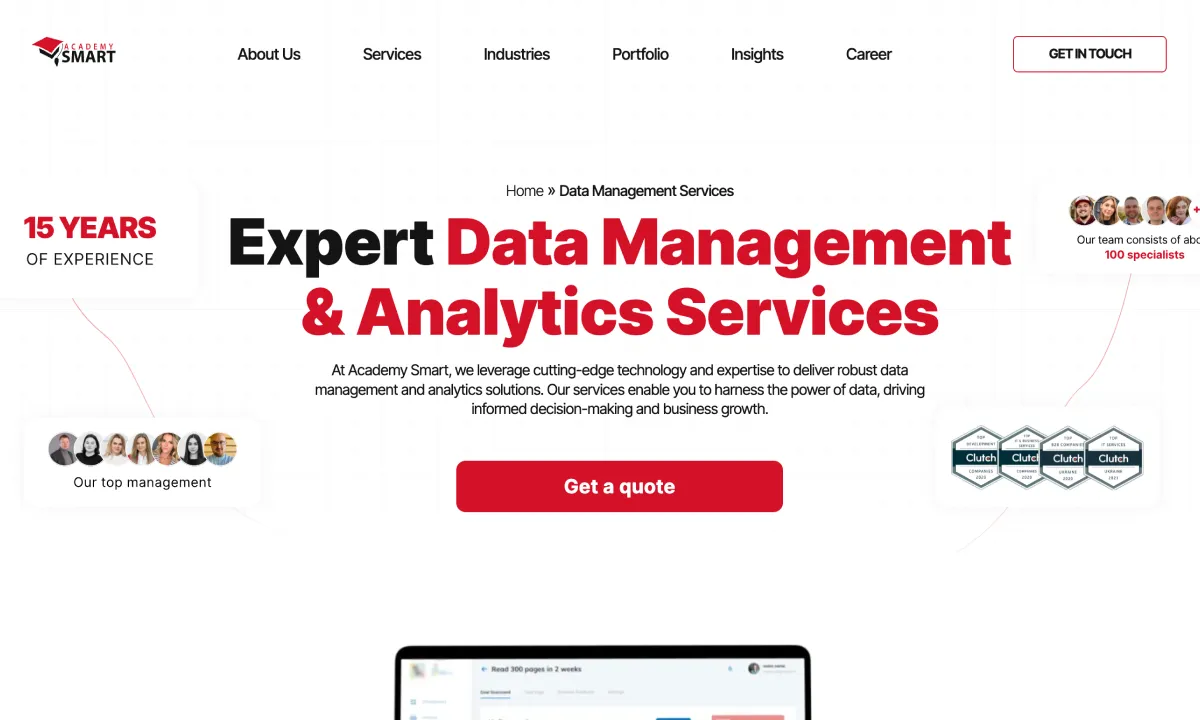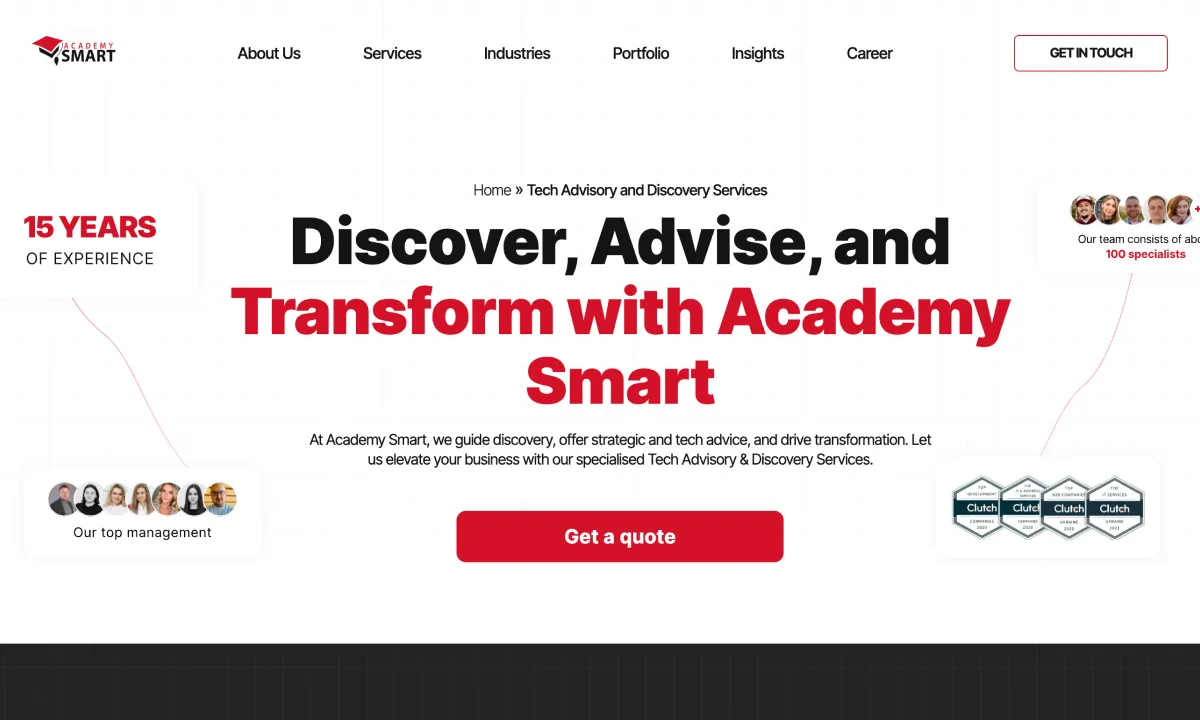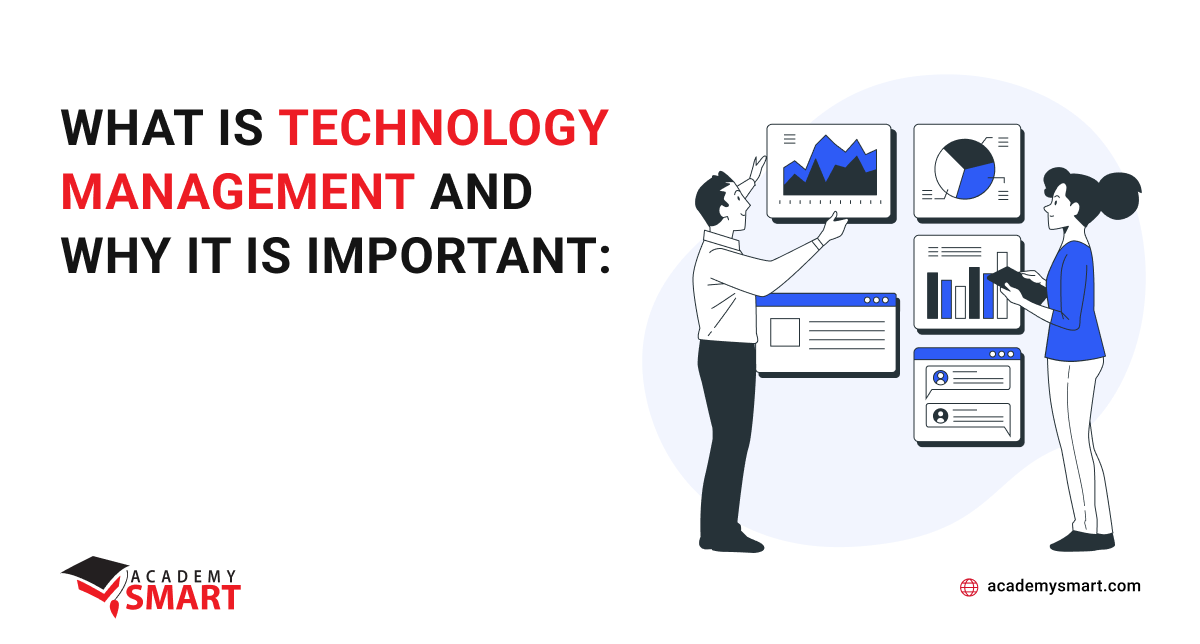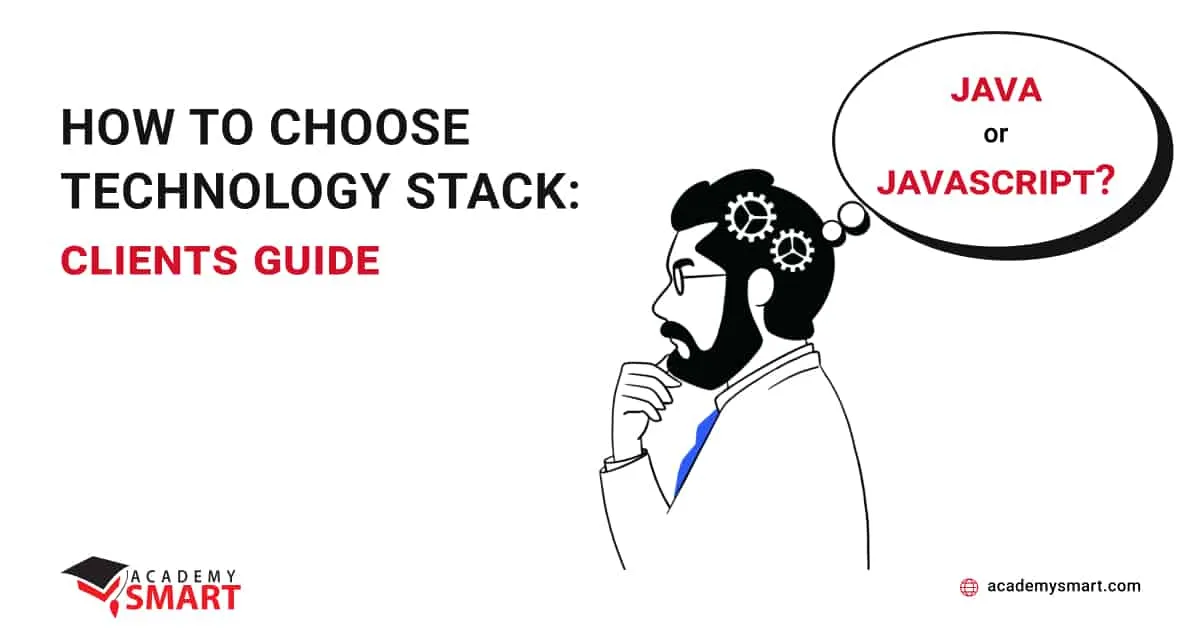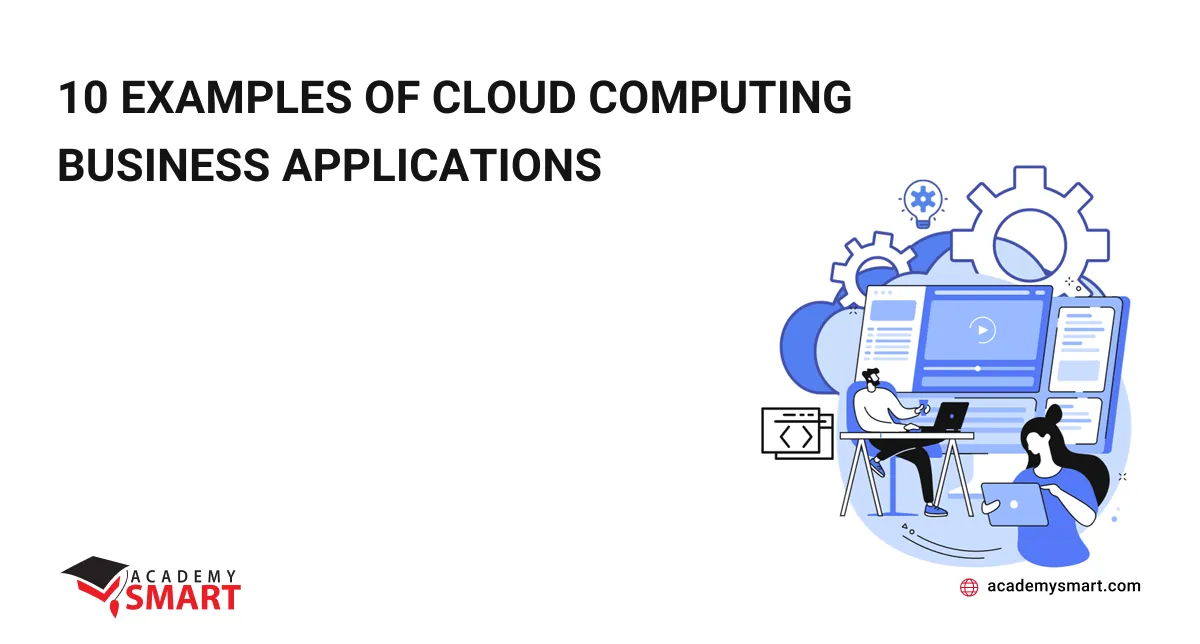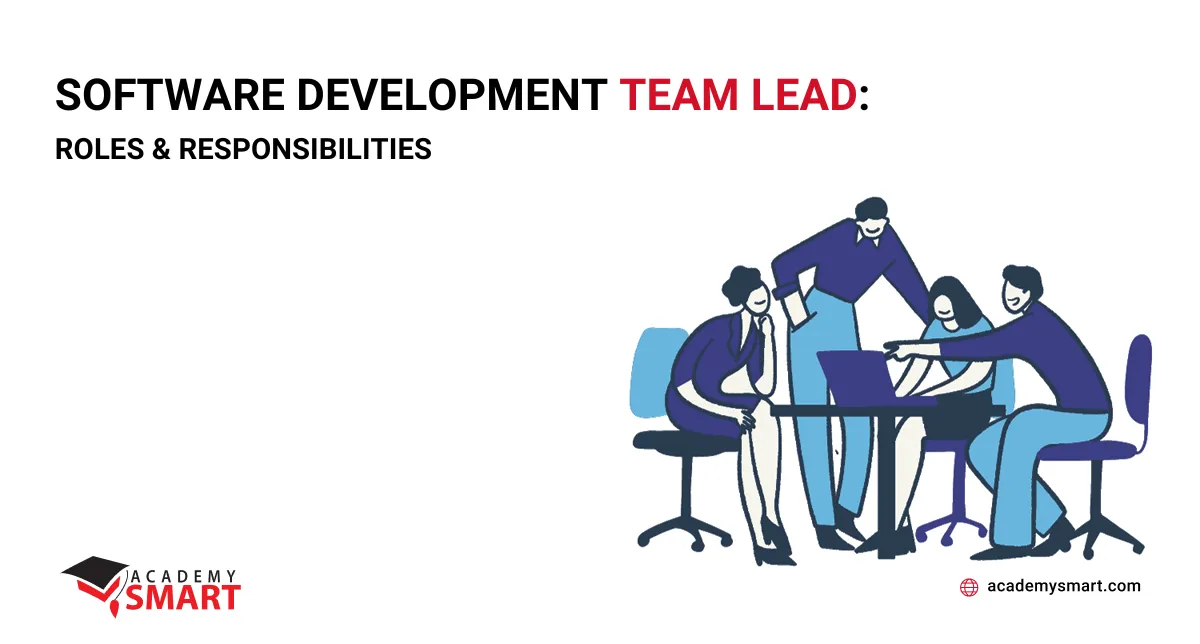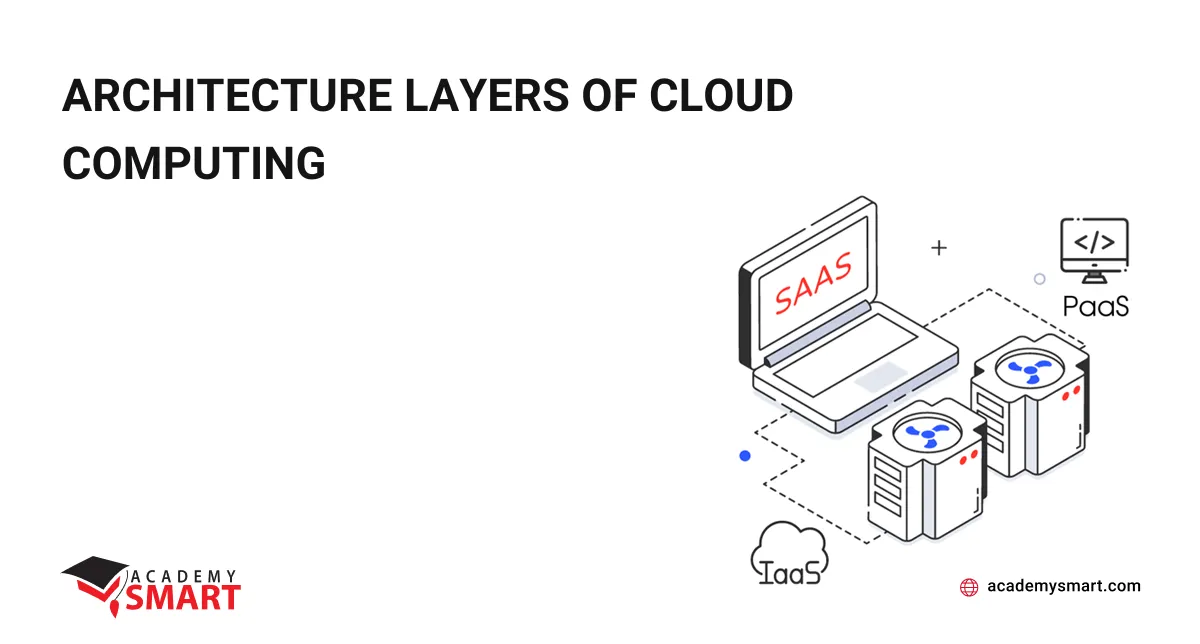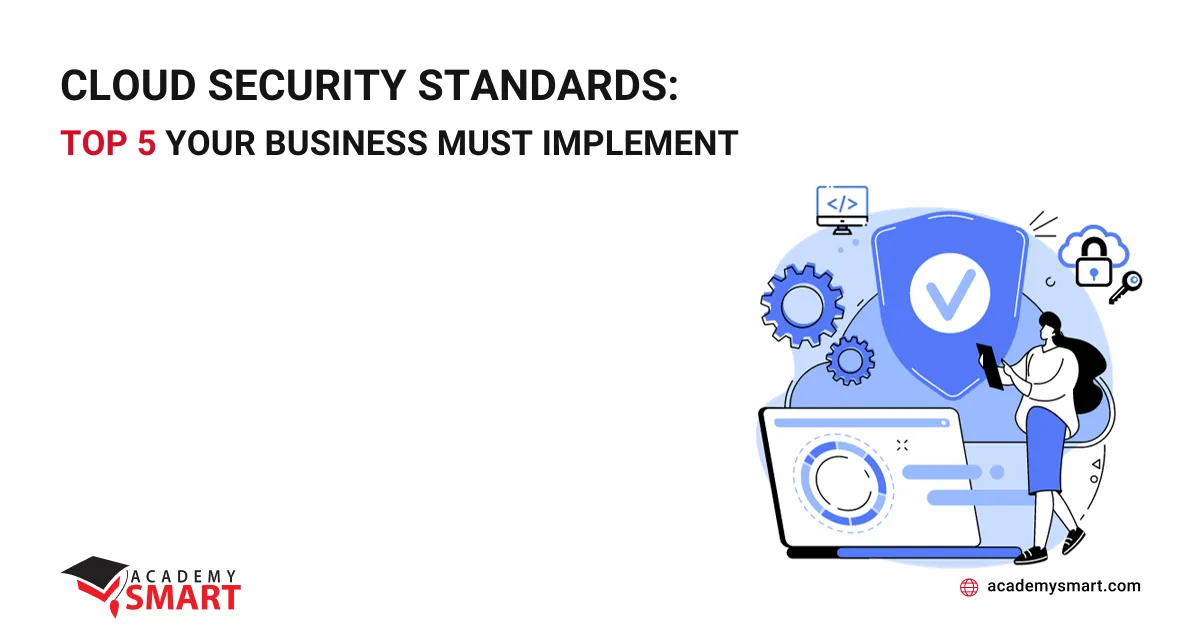
Cloud Security Standards: Top 5 Your Business Must Implement
Contents
Today, adopting cloud services has become integral for enterprises, offering remarkable benefits such as cost-effectiveness, accessibility, and scalability. However, the surge in cloud reliance exacerbates the challenge of ensuring compliance with security standards. The shared liability inherent in leveraging third-party providers for online computing infrastructure heightens the importance of addressing safety concerns. This article will explore the significance of cloud security standards, serving as a simple basis of knowledge to reinforce your business data protection.
How Cloud Standards Regulations Improve Cloud Security
Cloud security standards are essential in enhancing the overall security of cloud environments, providing a framework and guidelines to mitigate potential risks and vulnerabilities. These standards are a set of best practices and protocols that businesses adhere to when creating or using cloud software applications. Their importance cannot be overstated, especially in the context of shared responsibility models inherent in cloud computing.
Firstly, cloud security standards act as a crucial benchmark for organizations to ensure their data’s confidentiality, integrity, and availability in the cloud. With the rapid adoption of cloud technologies, businesses often entrust third-party providers with critical data and operations. Standards such as ISO/IEC 27017/27018, PCI DSS, NIST SP 800-53, CSA CCM, and CIS CSC provide a structured approach to secure this shared responsibility.
Secondly, these standards are designed to address the evolving threat factor. As cyber threats become more sophisticated, adhering to established standards becomes a proactive measure against potential security breaches. They guide businesses in implementing robust security controls, encryption protocols, and identity and access management practices, ensuring a comprehensive defense against emerging cyber threats.
Furthermore, cloud security standards contribute to regulatory compliance. Many industries and regions have specific rules governing the protection of sensitive data. Adhering to cloud security standards helps businesses align with these regulations, avoiding legal consequences and reputational damage.
In essence, cloud security standards serve as a foundation for custom software developers and their business clients to navigate the complexities of cloud security. They provide a roadmap for designing, implementing, and maintaining secure cloud architectures, offering assurance to providers and users that robust security measures are chosen.
Considering security in the public cloud from the start reduces the cost of building and bringing apps to market. A protected and safe application is always more in demand among the audience. Successful stories of companies using Academy Smart’s cloud development services can confirm this.
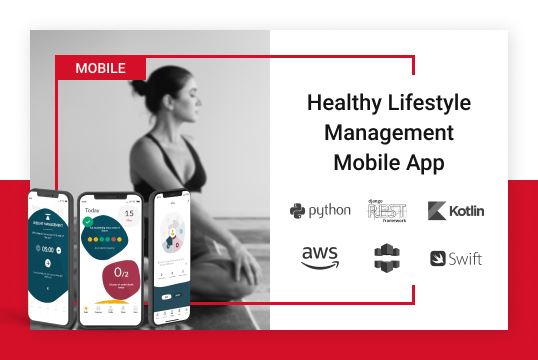
Secure cloud-based personal healthcare app Medifast
5 Cloud Security Standards Your Business Application Needs
Numerous cloud security standards exist, each focusing on specific aspects of data safety. However, several of the most significant regulations should be adhered to in most cases when it comes to a business application.
1. ISO cloud security standards
The International Organization for Standardization (ISO) has established a comprehensive set of standards to address various aspects of cloud security. These standards are essential guidelines for organizations seeking to strengthen their information security management systems and adhere to international best practices. Here’s an overview of some critical ISO standards related to cloud security:
- ISO/IEC 27001: information security management system framework
ISO/IEC 27001 is the de facto international set of guidelines for standardizing the full lifecycle of an Information Security Management System (ISMS). It ensures a structured approach to managing sensitive information, offering specific considerations for cloud computing. This protocol includes risk assessments, security control implementation, and continuous improvement measures, providing organizations with a robust foundation for cloud security. - ISO/IEC 27002: best practices for information security controls
As a companion standard to ISO 27001, ISO/IEC 27002 details best practices for implementing security controls outlined in ISO 27001. It offers guidance on applying security controls and reinforcing the implementation of ISO 27001. ISO/IEC 27002 supports companies’ journey towards comprehensive information security, including cloud environments. - ISO/IEC 27017: securing cloud computing
ISO/IEC 27017 acts as a guide for information security relevant to cloud computing. It provides security rules for cloud service providers and customers, extending the reach of ISO/IEC 27002. This standard addresses critical aspects such as asset ownership, user access management, and division of duties, minimizing security risks associated with cloud services. - ISO/IEC 27018: personal data protection in cloud computing
As the pioneer international standard for personal data protection in cloud computing, ISO/IEC 27018 establishes universally recognized control objectives. It focuses on safeguarding Personally Identifiable Information (PII) in line with privacy principles, making it particularly relevant for businesses handling personal data in cloud-based platforms. Adhering to ISO/IEC 27018 reinforces data privacy commitments and aids in compliance with privacy laws such as GDPR and CCPA. - ISO/IEC Technical Report 22678: cloud policy guidelines
ISO/IEC Technical Report 22678 provides essential guidelines for developing cloud-focused policies. It is a valuable resource for businesses aiming to establish adequate procedures that align with cloud computing environments, offering practical insights for security policy implementation.
2. PCI DSS standard
PCI DSS is a set of security requirements established by the Payment Card Industry Security Standards Council (PCI SSC) to ensure the secure handling of payment card data. Unlike government-driven standards, PCI DSS is dictated by the payment card industry. The standard applies to companies that process, store, or transmit cardholder data, including cloud service providers.
The primary objective of PCI DSS is to protect sensitive payment card information and prevent data breaches that could lead to payment card fraud. It encompasses 12 key requirements, covering areas such as installing and maintaining firewalls, encrypting cardholder data, protecting systems from malware, restricting access to cardholder data, and monitoring network resources. Compliance with PCI DSS is mandatory for any entity involved in digital commerce. Failure to concede with PCI DSS could result in losing the ability to process payment card transactions.
Merchants or service providers must adhere to PCI DSS to not only meet legal requirements and avoid substantial fines but also to demonstrate a commitment to the security of customer data. The standard is a crucial framework for creating a secure environment for handling credit and debit card information, instilling customer confidence, and mitigating the risk of data breaches in an age where such incidents are common.
3. NIST cloud security guidelines
Crafted by the National Institute of Standards and Technology (NIST), the NIST cloud security standards provide a robust framework for securing cloud-based systems. They are based on the Risk Management Framework (RMF), outlined explicitly in NIST SP 800-37, facilitating the selection and implementation of appropriate security controls based on the impact level of the information system.
NIST SP 800-53, a widely used information system security standard, applies to cloud environments. It provides a comprehensive catalog of security and privacy controls for federal information systems and organizations. These rules cover crucial areas such as access control, audit and accountability, configuration management, and contingency planning. Originally designed for U.S. federal government agencies, NIST’s principles, especially outlined in NIST SP 800-53, have proven versatile and practical across various sectors and businesses of all sizes. The guidelines offer a rich array of security and privacy controls that can be tailored to meet the unique requirements of different systems and enterprises.
4. CSA cloud security guidance
The Cloud Security Alliance (CSA) is noticeable in advancing cloud security through its comprehensive framework, which revolves around transparency, thorough audits, and the convergence of diverse standards. At the heart of CSA’s efforts is the STAR Program for Security, Trust & Assurance Registry, which is designed to empower cloud service providers to assess and enhance their security protocols. The program offers two valuable tools: the Consensus Assessments Initiative Questionnaire (CAIQ) and the Cloud Controls Matrix (CCM). Collectively, these tools form a reliable security controls framework tailored for cloud-based IT systems.
CSA CCM defines a set of security managings for cloud computing. It encompasses 16 domains: cloud governance, data security, identity and access management, encryption, key management, threat and vulnerability management, incident response, business continuity, disaster recovery, and audit assurance. Following CSA CCM aligns cloud security strategies with CSA’s best practices, reducing the complexity and cost of cloud security audits and certifications.
5. CIS benchmarks for cloud infrastructure
The Center for Internet Security (CIS) provides a potent framework known as CIS Benchmarks, offering a set of vendor-neutral, consensus-based, safe configuration guidelines for various technologies and systems. These standards are tailored explicitly for cloud infrastructure and are pivotal in enhancing cybersecurity defenses. They cover many cloud providers, including Oracle Cloud Infrastructure, IBM Cloud, Amazon Web Services, Microsoft Azure, Google Cloud Platform, and Alibaba Cloud. The benchmarks offer practical security configuration outlines based on best practices, catering to the needs of system administrators, security experts, auditors, and DevOps personnel.
The CIS CSC contains a comprehensive pack of security authorities, addressing 20 critical areas, including the inventory and control of hardware and software assets, secure configuration of systems and applications, ongoing vulnerability inspection and remediation, controlled usage of administrative rights, email and web browser defense, malware protection, data security, and incident response. This prioritized set of actions is designed to mitigate the most common and impactful cyber threats.
Companies can leverage CIS Controls as open-source policies rigorously reviewed by security professionals. For cloud security, CIS Benchmarks customized for specific cloud service providers, such as CIS-AWS controls for Amazon Web Services, provide a valuable resource for securing cloud workloads. These controls are continually updated and validated to address evolving cybersecurity threats.
Ensuring the security of a cloud application involves a comprehensive and multi-faceted approach. While utilizing various cloud security standards can significantly enhance the security posture of a cloud app, it’s important to note that no single standard can provide absolute security on its own. Each benchmark addresses specific security aspects, and their collective use can contribute to a more robust security framework.
Enterprise cloud adoption strategy often adopts a combination of security standards based on their specific needs, industry requirements, and the nature of their cloud-based applications. The result is high-quality and safe software products, as in our portfolio presentation.
Create Your Secured Cloud Business Software with Academy Smart
For 14 years, our team has been creating original cloud applications for enterprises and helping them transfer business activities to the cloud. To work on its clients’ projects, Academy Smart attracts experienced and talented programmers, cloud application engineers, DevOps, business analysts, and project managers. Our services include custom turnkey software development and staff augmentation by remote IT employees. Contact us to strengthen your team.
Frequently Asked Questions: Cloud Security Compliance Standards
How can a business implement a robust cloud security plan compliant with current regulations?
A business can adopt industry-recognized cloud security standards, regularly audit and update security measures, and ensure ongoing employee training on security best practices, staying informed about evolving regulatory requirements.
How do cloud storage security standards protect sensitive data?
Cloud storage security standards safeguard sensitive data by specifying protocols for encryption, access controls, and data integrity, ensuring that information is protected during storage, transit, and processing within cloud environments.
Book a free consultation

Reach out to start talking today!

